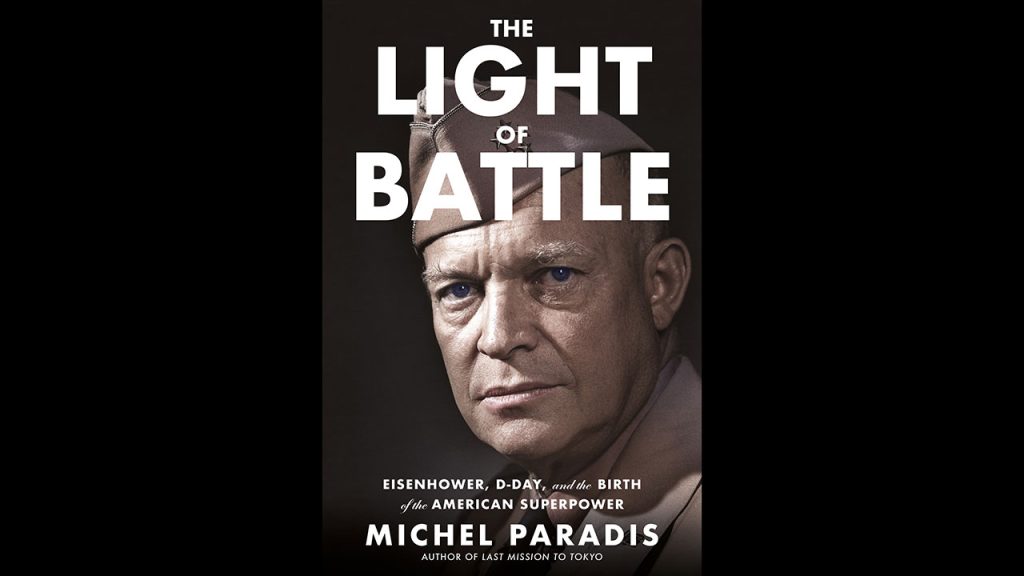By Michel Paradis’ count, the New York Public Library contains at least 3,349 books about D-Day and 1,950 about Dwight D. Eisenhower, the supreme allied commander who led the massively complex invasion that helped liberate France from Nazi Germany.
Why add another book to those bulging shelves?
Because the six-month lead-up to D-Day illuminates Eisenhower’s singular diplomatic skills, Paradis writes in The Light of Battle, and his “underappreciated role in America’s rise as a superpower.”
Paradis—a human rights lawyer, historian, and fellow at the Center on National Security at Fordham Law School—does this by focusing on the six months leading up to the invasion, starting with President Franklin Delano Roosevelt’s decision to select Eisenhower over General George C. Marshall as supreme allied commander.
Paradis draws on deep archival research and newly found letters to build a compelling portrait of Eisenhower’s character and capabilities. The future U.S. president’s “most fateful choices” were diplomatic, Paradis writes, as he tactfully navigated the political and logistical difficulties of planning such a high-risk, high-reward operation. He managed to double the size of the planned invasion and persuade Winston Churchill and the British, among other international leaders, to go along with the plan.
In vivid, humanizing detail, Paradis brings out the roiling drama centered around Eisenhower, who often had to project optimism even when he knew the venture was on the verge of collapse.
“By avoiding the grandiosity associated with great power,” Paradis writes, and beaming American openness and opportunity, “Eisenhower made it easy to believe that there was nothing to fear. He wore his ambition lightly … [in]service to a cause greater than himself.”

